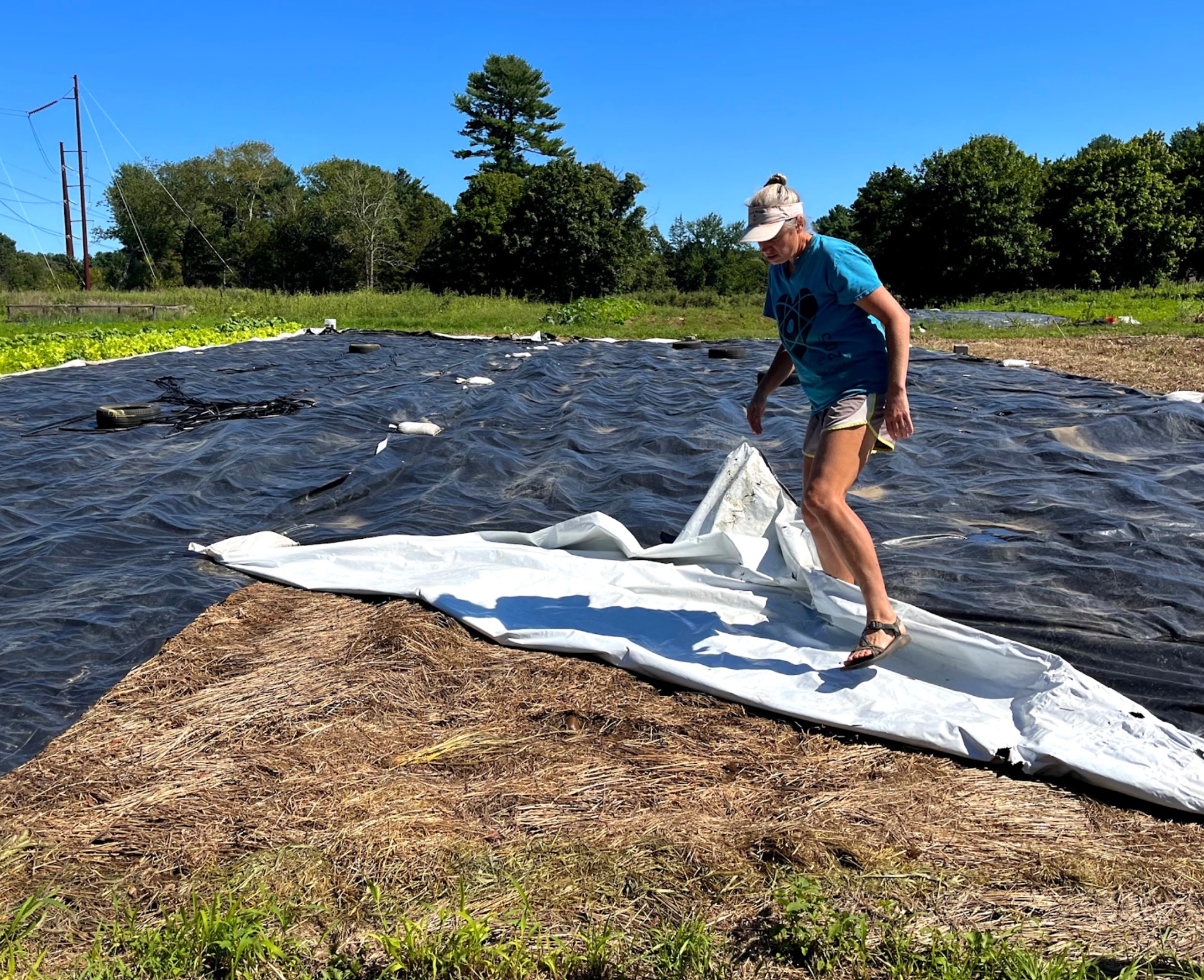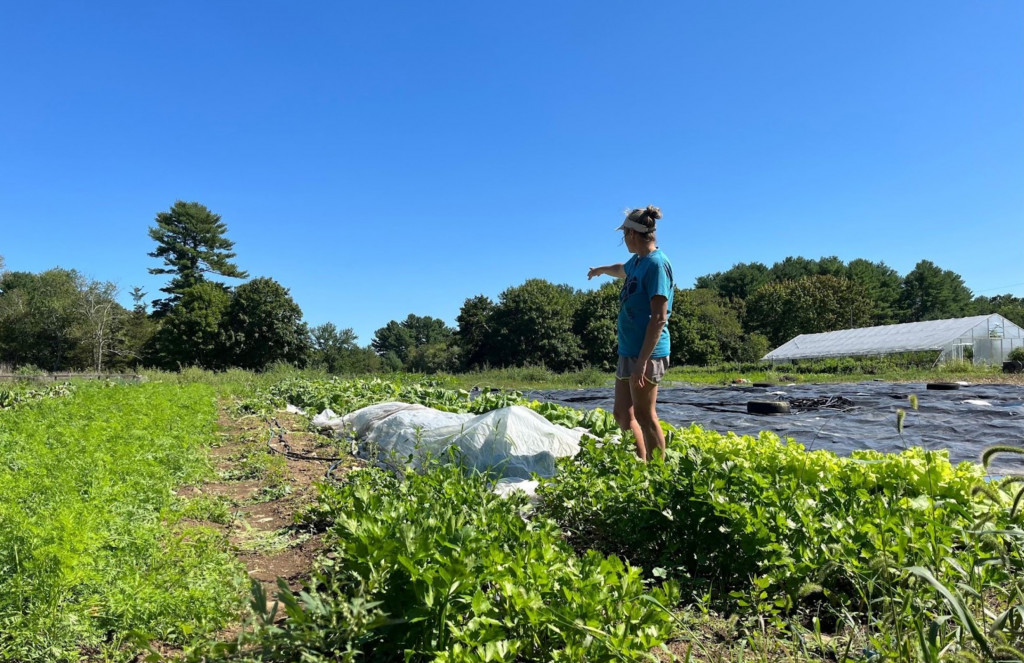
Diane Dorfer on her farm. (Zareen Reza/University of Connecticut)

Diane Dorfer on her farm. (Zareen Reza/University of Connecticut)
MANSFIELD, Conn. — Diane Dorfer pulls the plastic tarp back over the hay-covered ground that recently grew cabbages and brussels sprouts. She has just finished talking about how rabbits, thirsty from the summer’s drought, had eaten away at the green vegetables as a meager source of water.
Dorfer, 46, owns and runs Cobblestone Farm, a Community-Supported Agriculture (CSA) farm. She has invited university students to visit the farm and ask her questions.
As she shepherds the students back to the parking area, someone asks her how far in advance she plans for the growing season. It seems like a practical question with a straightforward answer, but she pauses, looks to the sky and sighs. “That’s actually more of a mental health question than anything else.”
Farming has one of the highest suicide rates of any occupation in the country, according to Rebecca Toms, communications coordinator for Solid Ground, a program created by UConn’s College of Agriculture, Health, and Natural Resources Extension. The program aims to provide support, training, and a community of like-minded people to new farms and farmers around Connecticut.
As well as being a farmer herself, Toms, 36, received her Master’s degree in social work. Her current role at Solid Ground has allowed her to use both of her fields of expertise. Earlier this year, she hosted a series of webinars on farmer stress and solutions.
Farming fosters a certain culture that may make getting mental health help harder. “Within the farming industry there is a strong vein of self-sufficiency, which makes it hard to say ‘I have a problem,’” says Toms. In agriculture, there are so many other problems to address first.
Finances pose the biggest challenge to small farmers, followed by legal and land issues. In Connecticut especially, land is prohibitively expensive, making it difficult to get into and stay in farming. Moreover, supply-chain issues and inflation in recent years have dramatically increased the cost of raw materials.
Many newer small farmers start their careers for emotional, physical, and spiritual satisfaction; both Dorfer and Toms cite these reasons. But small-scale farming is not a lucrative business. For some, the job itself is the yield.
“My financial goal was to be able to afford to do the job,” says Dorfer.

Physical health is another major factor to mental health. The intensive labor of farming takes a major toll on the body. Farming is not just time-consuming, but all-consuming: it takes up such a large part of a person’s life that it can put a major strain on their relationships. Often, they have to choose between farming and their families.
Some farmers cannot pull through and must leave the profession because they do not have the time, resources, or physical strength to continue.
These aspects are stressful enough by themselves, but climate change has been making the job increasingly difficult. Rising temperatures, shifting season lengths, and changes in precipitation are just a few of the climate threats that loom over the farming industry. These factors make it hard to reliably predict and plan for the growing season; looking at the past year or two doesn’t provide enough data, yet looking too far into the past doesn’t help either due to climate change. “Every year is new data,” says Dorfer.
One weather anomaly can compromise an entire season’s worth of crops. A one-day spike or dip in temperature could kill off an entire batch; a false start to spring might cause crops to start growing early, only to be killed off by frost.
Secondary issues arise from the more direct effects of climate change. Warmer winters allow insects that would otherwise die off during the cold weather to survive, increasing the number of pests that can damage crops. During droughts, mammals eat the vegetables for their water content. Farmers then have to spend more money to keep the damaged crops alive and the pests at bay.
Toms recounts a moment over the summer where thinking about climate change gave her a panic attack. “It’s terrifying,” she says.
Dorfer says that this past summer was particularly hot and miserable; her work felt “demoralizing” and would sometimes make her think, “Why am I doing this?” Even so, she could not imagine doing any other job.
Making resources available to farmers, Toms says, is the most effective way to decrease farmers’ stress. This is Solid Ground’s biggest priority. A large part of their work consists of making things as easy as possible for farmers, as they have little time to deal with the many administrative aspects of farming. This includes facilitating access to legal help, assisting with grants and subsidies, and making farming supplies available and easy to find.
The movement for farmers’ mental health is very new, but Toms is hopeful that it will gain traction and help farmers everywhere. “It’s something that’s just beginning, and personally, I hope I can be a part of it.”